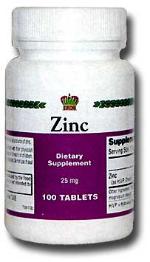
network of research and training centres/programmes
One in five lack enough zinc in diet – report
Up to one-fifth of the world’s people lack sufficient zinc in their diet, while an estimated one-third live in countries considered at high risk of zinc deficiency, warns a comprehensive new report by an international group of medical researchers.
 |
Countries at high-risk are mostly in South and Southeast Asia, sub-Saharan Africa, Central America and the Andean area of South America. However, more research is needed to better measure the size of the problem and identify specific sub-groups at highest risk, the report says.
The report, Assessment of the Risk of Zinc Deficiency in Populations and Options for its Control, was presented at the UN Standing Committee on Nutrition March 23. Earlier that day the report was the focus of a panel discussion organised by UNU Office in New York and held at the UN secretariat.
The report says that the magnitude and associated problems of zinc deficiency have been poorly understood in the past. It sheds new light on the importance of zinc to human health and points a way forward not only for addressing deficiency problems in developing countries but also for future research.
The consultative group IZiNCG, established in 2000 by UN University Food and Nutrition Programme (UNU-FNP) and the International Union of Nutrition Scientists, describes major new insights on: the human health consequences of zinc deficiency; available methods for assessing population zinc status and current estimates of the magnitude and global distribution of the problem; and possible strategies to control this nutritional deficiency disease.
"Knowledge of the occurrence of zinc deficiency and its importance to human health has increased greatly in recent years," says Dr. Ken Brown, MD, a professor of international nutrition at the University of California, Davis, who co-chairs the group’s Steering Committee.
Dr. Brown says a considerable number of community-based, controlled intervention trials have been conducted in lower income countries in the past decade, in which zinc supplements were provided to young children.
"These studies consistently show that the incidence of diarrhea and respiratory infections is reduced by providing additional zinc, and growth rates of previously stunted children are increased significantly," he said. "There is also some evidence that infants of mothers who received zinc supplements during pregnancy have less diarrhea during the first months of post-natal life.
"Interventions to improve zinc status show promise as a relatively low-cost means of improving children's health, and possibly their chances of survival, in poor countries."
Zinc deficiency is an important cause of the higher morbidity and mortality rates among impoverished children, contributing to impaired growth and development, the research shows. Randomized, controlled trials of zinc supplementation among such children produce impressive 25% decreases in the prevalence of diarrhea and 40% reductions in the rate of acute lower respiratory infections, like pneumonia.
These diseases are among the most common causes of child mortality in developing countries. Early evidence indicates that mortality rates are reduced by 50% or more among zinc-supplemented children in high risk settings. The report cites research that demonstrates chronically undernourished children who receive supplemental zinc have significantly increased rates of linear growth and weight gain.
The research cites several options for combating zinc deficiency, including:
- Pharmacological supplements such as tablets or syrups, or as specially formulated zinc-fortified foods;
-
National
programs to fortify staple foods (e.g., flour), a strategy already
employed to deliver other nutrients such as iron and folic acid;
- Public education on good dietary sources of zinc, such as animal source foods (meat, sea food) and whole grain cereals and legumes, and increasing their availability in the food supply.
"It is hoped this document will serve to promote greater awareness among key public health decision makers of the importance of zinc nutrition and help governments, international agencies, and private organizations to ameliorate or, ideally, prevent health problems related to inadequate zinc intake," said UNU-FNP Director Dr. Cutberto Garza.
![]()
Copyright © 2004 United Nations University. All rights reserved.
